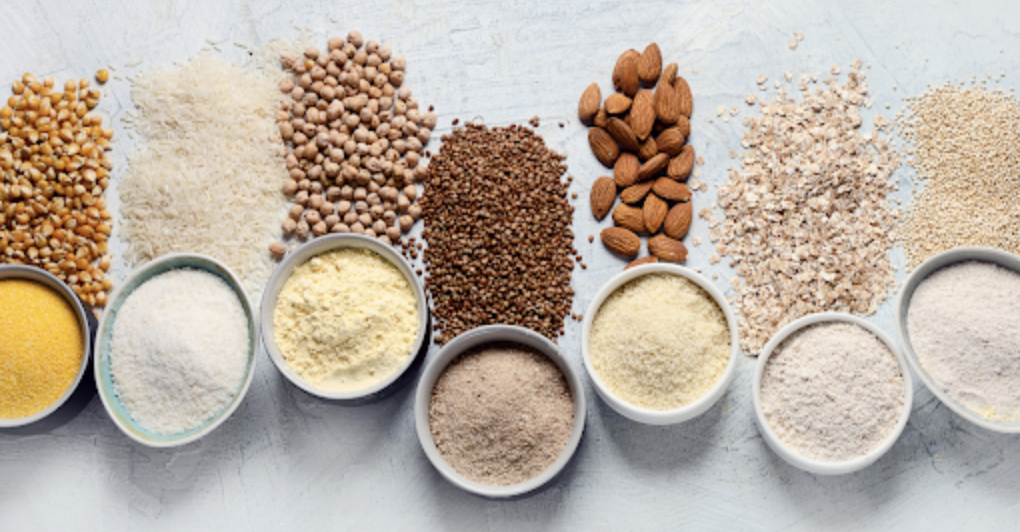Your All-Inclusive Guide To A Gluten-Free Diet

According to the NIH, about 2 million people in the United States have celiac disease— an immune reaction to eating gluten. Gluten is a protein found in wheat, barley, rye, and other grains. For individuals with certain medical conditions, such as celiac disease or gluten intolerance, consuming gluten can lead to a range of uncomfortable symptoms and long-term health complications. Luckily, a gluten-free diet is more than likely to eliminate your gluten-related GI symptoms.
Gluten-Free Diet
Whether you have recently been diagnosed with celiac disease, non-celiac gluten sensitivity, or you simply want to explore the benefits of a gluten-free lifestyle, Birmingham Gastroenterology is here to help you navigate the ins and outs of living without gluten.
Learn What Foods To Avoid
The very first step in adopting a gluten-free diet is learning to recognize foods that contain gluten. Some common types of foods that may lead to worsening symptoms due to gluten intolerance or celiac disease include:
- Bread: White, whole wheat, potato, rye, sourdough, and bagels
- Condiments: Soy sauce, barbeque sauce, Worcestershire sauce, and some salad dressings
- Baked goods: Cakes, cookies, brownies, cupcakes, donuts, pancakes, and muffins
- Snack foods: Pretzels, granola bars, cereal, snack mixes, candy bars, and chips
Even in food items you think are safe from containing gluten, it is essential always to double-check.
Learn What Foods To Eat
Luckily, there are a plethora of foods still on the table when it comes to eating a gluten-free diet. There are many options that boast an excellent source of fiber, vitamins, and minerals. If you cannot eat foods containing gluten, you can still enjoy the following foods:
- Fruits and vegetables: Broccoli, apples, kale, spinach, bananas, avocados, and berries
- Legumes: Lentils, black beans, peas, kidney beans, chickpeas
- Gluten-free grains: Corn, brown rice, millet, quinoa, buckwheat, oats
- Animal proteins: meat, poultry, shellfish, eggs, dairy products
There are also several companies that specialize in making gluten-free products.
Become Educated On Food Labels
It is important to remember that a gluten-free diet is not synonymous with a healthy diet. The market for gluten-free alternatives has expanded rapidly, which has led to an increase in packaged gluten-free foods. However, many of these products are highly processed, containing added sugars, unhealthy fats, and preservatives. A gluten-free diet should be approached with mindfulness and a focus on overall nutrition.
Explore Gluten Alternatives
A life with no bread is a sad one. Luckily, due to the prevalence of those affected by gluten intolerance or celiac, there are several options when it comes to gluten alternatives. Some of our favorite companies that specialize in making gluten-free products include
- Simple Mills: Crackers, cooking mixes, cookies, pizzas, bars, etc.
- Enjoy Life Foods: Crackers, protein bars, cookies, etc.
- Bob’s Red Mill: Granola, flour, cake mix, cookie mix, pie crust mix, brownie mix, etc.
- Udis: Bagels, bread, pizza, granola, etc.
- Glutino: Pretzels, crackers, cookies, wafers, baking mixes, English muffins, etc.
Experimenting with different gluten-free products can help you discover delicious alternatives that satisfy your cravings while adhering to your dietary requirements.
Be Aware Of Cross Contamination
For those with severe celiac disease, cross-contamination can pose a real threat. That is why it is important to maintain a gluten-free environment. This involves using separate utensils, cookware, and cutting boards for gluten-free food preparation. Don’t forget to thoroughly clean surfaces and check ingredient labels for potential cross-contamination. It is also important to communicate your dietary needs with others and inform restaurant staff about your gluten-free requirements.
If you are struggling with gluten intolerance or suffer from celiac disease, you should seek medical attention from a GI specialist for evaluation. The team at Birmingham Gastroenterology has decades of experience treating diseases and disorders in all parts of the digestive system. This includes helping patients manage their symptoms associated with gluten. To make an appointment to discuss the best gluten-free diet, call us at (205) 271-8000.

